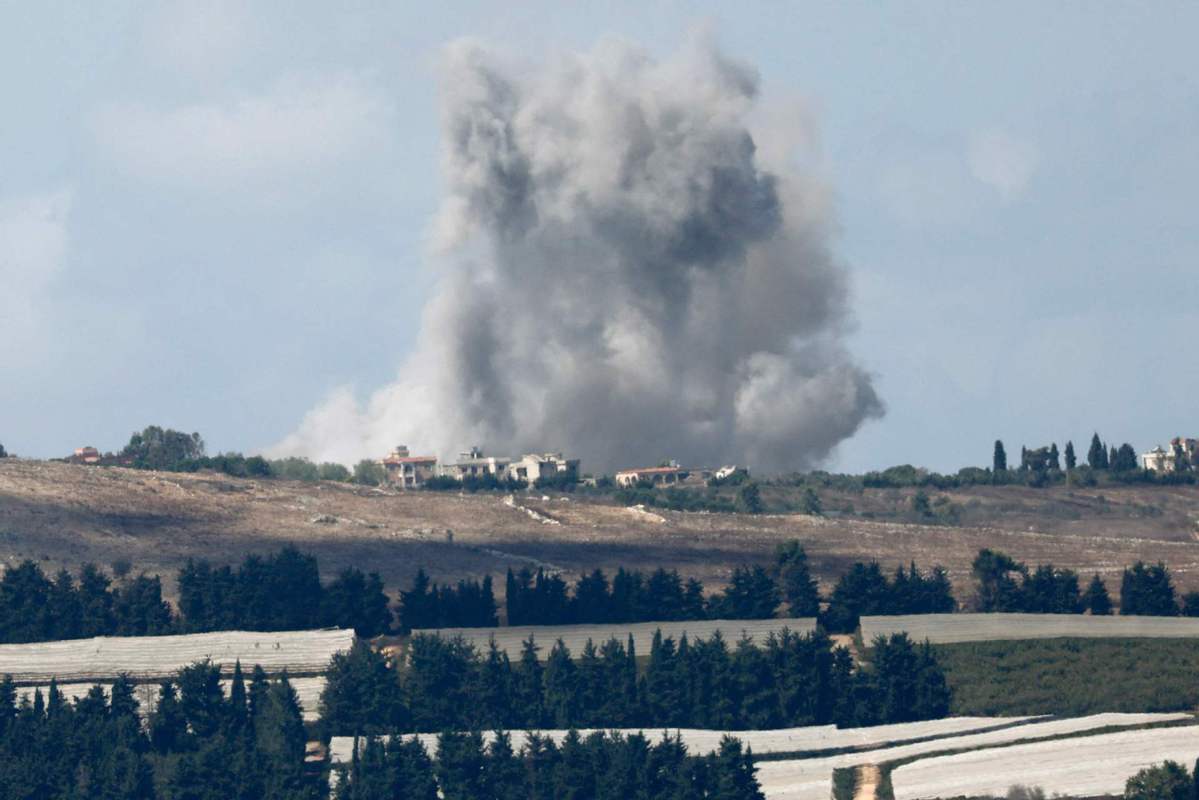Is a larger-scale war imminent in the Middle East?
On the first anniversary of the latest round of the Israel-Palestine conflict By Shi Bowei


It has been exactly one year since the latest round of the Israel-Palestine conflict erupted on October 7, 2023. Over the past year, the conflict has extended far beyond the fighting between Hamas and Israel. Iran and Hezbollah in Lebanon have become deeply involved, and if we include the influence of the US, the UK, the Houthi forces in Yemen, and other actors, this round of the Israel-Palestine conflict has evolved into a broader Middle Eastern conflict.
The result has been massive civilian casualties and a severe humanitarian crisis. To date, the trend of escalating violence shows no sign of abating. Following the death of Hezbollah's Supreme Leader Sayyed Hassan Nasrallah in late September due to an Israeli missile strike, and Iran's subsequent large-scale ballistic missile retaliation against Israel, the conflict risks escalating into an all-out war. The dangerous trend toward a regional conflict has even led the US, a steadfast supporter of Israel, to urge all parties involved, particularly Israel, to exercise restraint.
The harm inflicted on civilians by the military conflict, along with the devastation of their homes, is staggering. The damage to the region's economic development is incalculable. Since the conflict began, China, along with other morally responsible nations, has consistently called for an immediate ceasefire and for resolving the dispute through political means, such as negotiations. China has also taken practical steps to provide humanitarian aid to civilians in the conflict areas. However, these practical proposals for ceasefire negotiations have not been accepted by Israel. Efforts to submit a Gaza peace resolution to the United Nations Security Council by peace-loving nations have repeatedly been blocked by the US, making its implementation difficult. Israel's absurd move to classify the United Nations Relief and Works Agency for Palestine Refugees (UNRWA) as a terrorist organization, along with its decision to ban UN Secretary-General António Guterres from entering Israel, has led to serious doubts about Israel's commitment to peace, especially as the party with a military advantage.
What has further heightened the international community's skepticism about Israel's willingness for peace is the series of "decapitation operations" it has launched over the past year. These targeted assassinations against the leadership of Hamas, Hezbollah and senior Iranian military officials have been a key trigger for escalating the conflict. Hezbollah leader Sayyed Hassan Nasrallah's assassination, in particular, has stirred deep resentment across the Arab world toward Israel. In response, Iran's Islamic Revolutionary Guard Corps launched a massive barrage of ballistic missiles against Israel. This marked the first time Iran had directly attacked Israel from its own territory, a development with potentially historic significance. Israel responded with strongly worded statements and is currently preparing to take retaliatory military action. Should Israel strike back, it is likely to create a "cycle of violence", leading to miscalculations, chain reactions, and an escalation into an uncontrollable and possibly all-out war.
In the face of the escalating conflict, the most effective and ultimate solution remains an immediate comprehensive ceasefire, followed by peace negotiations and the earnest implementation of the "two-state solution", where Israel and Palestine coexist. This has long been China's consistent and firm stance and represents the contribution China offers to resolve the conflict. All parties involved, particularly Israel as the militarily dominant actor, must recognize the importance of peace, cease further military action, and avoid worsening the situation.
Israel must also acknowledge and respect Palestine's right to sovereignty as a state, uphold the United Nations' core role in maintaining international peace and security, and actively seek to resolve the conflict through political and diplomatic means. As Chinese Foreign Minister Wang Yi stated in his speech at the 79th General Debate of the United Nations General Assembly in late September: "Peace is the most precious treasure of our world today. If there is even a glimmer of hope for peace, we must not give up easily. If there is still the slightest possibility, we must make a hundredfold effort."
For the sake of peace in the Middle East, the US, as a key stakeholder, must abandon its severely biased stance that favors Israel, stop fueling the fire, and instead adopt a fair and just position. The US should use its influence to actively promote diplomatic mediation and foster peace talks, playing a constructive role in achieving lasting peace in the Middle East. Other major international powers, including the UK and France, should also adopt a responsible attitude, quickly recognize Palestine as a sovereign state, strengthen dialogue and cooperation to resolve the Middle East conflict, and initiate timely diplomatic efforts to prevent further instability. These efforts should aim to establish mechanisms for lasting peace and ensure the stability and security of the region.
Shi Bowei is a lecturer from the Department of Political Science at the Party School of Zhejiang Provincial CPC Committee. The views don't necessarily reflect those of China Daily.
If you have a specific expertise, or would like to share your thought about our stories, then send us your writings at [email protected], and [email protected].

































